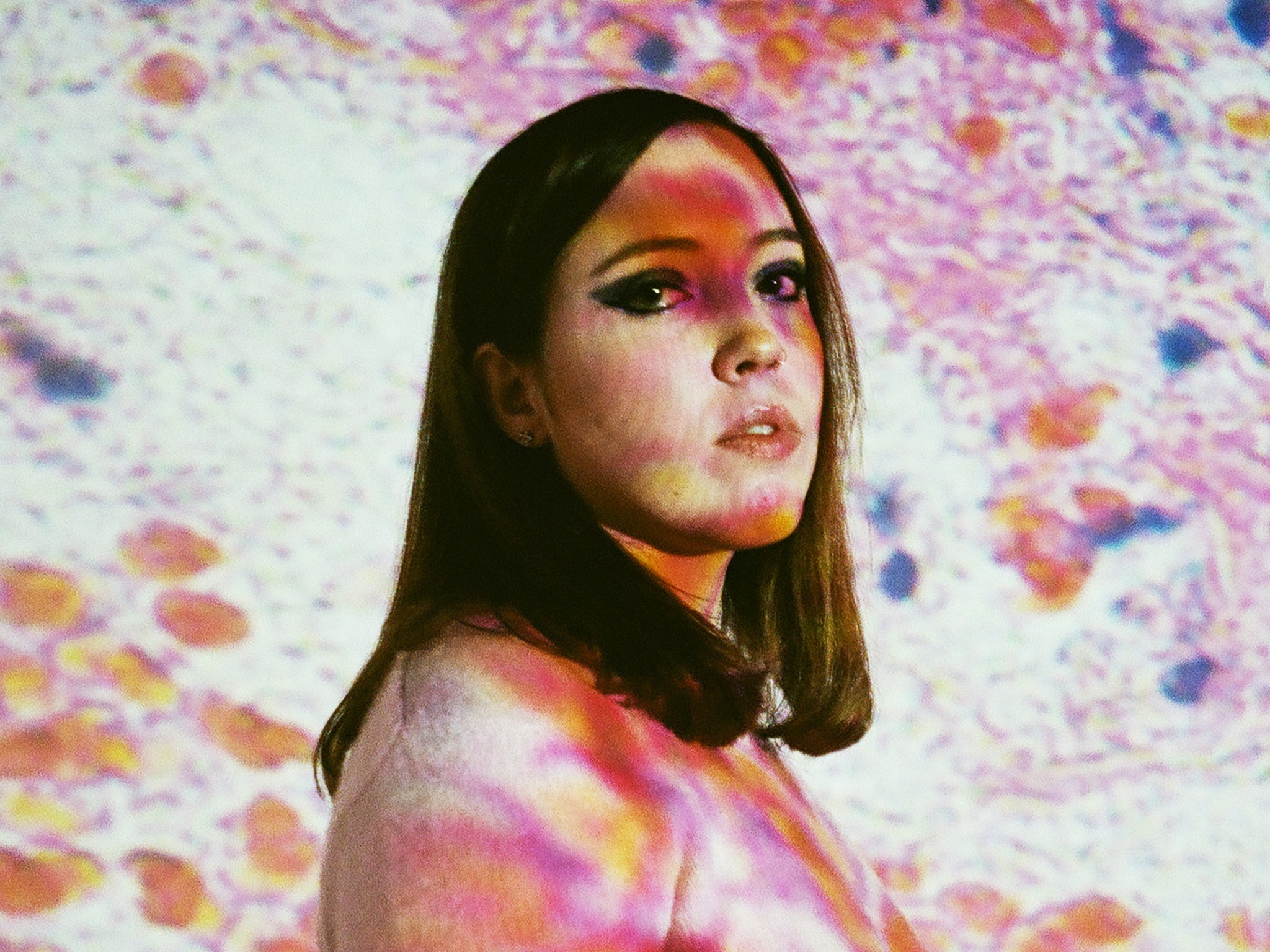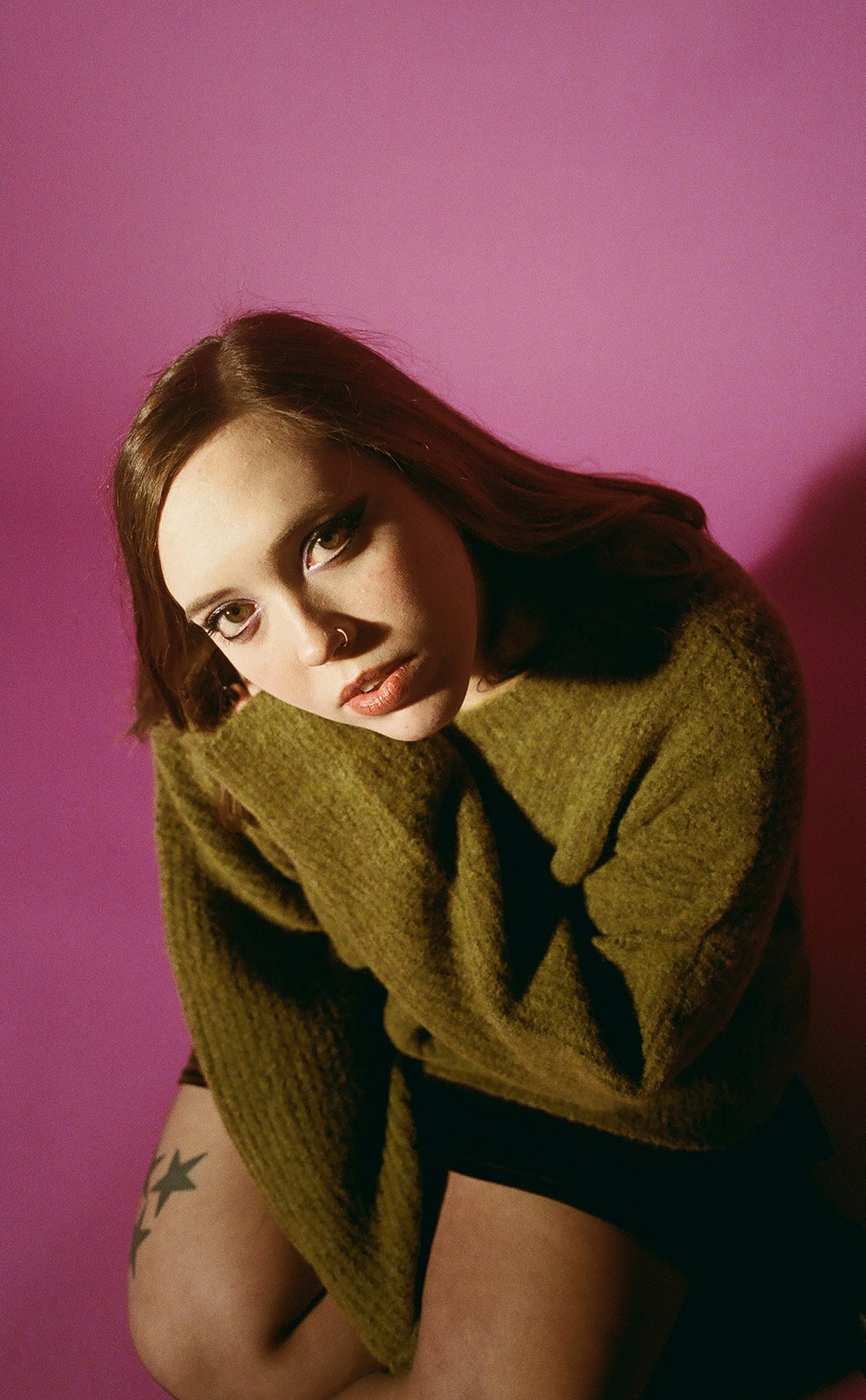Soccer Mommy: ‘I’m not a witch, but I do believe in witchcraft’
The singer-songwriter talks to Adam White about magic, her new album, walking away from ‘dehumanising’ social media, and being ‘a mess’ at the start of her career


Your support helps us to tell the story
From reproductive rights to climate change to Big Tech, The Independent is on the ground when the story is developing. Whether it's investigating the financials of Elon Musk's pro-Trump PAC or producing our latest documentary, 'The A Word', which shines a light on the American women fighting for reproductive rights, we know how important it is to parse out the facts from the messaging.
At such a critical moment in US history, we need reporters on the ground. Your donation allows us to keep sending journalists to speak to both sides of the story.
The Independent is trusted by Americans across the entire political spectrum. And unlike many other quality news outlets, we choose not to lock Americans out of our reporting and analysis with paywalls. We believe quality journalism should be available to everyone, paid for by those who can afford it.
Your support makes all the difference.I like to be the same kind of person I was when I was 17,” the singer-songwriter Sophie Allison is explaining, dressed in a black slip dress and scratching at the crescent moon tattooed on her upper arm. “When you start doing this for a living, and you go from being a totally normal person who’s constantly at home to someone who’s constantly working and being sucked into the industry, it can be very…” She searches for the right expression. “You lose yourself a little bit.”
Allison’s vulnerabilities are evident in her work. The 25-year-old from Nashville, Tennessee, who performs under the name Soccer Mommy, is a musical vessel for collective millennial angst. Lyrical melancholy is smuggled beneath distorted guitars and pop melodies. “I’ve barely left my room in the past week,” she sings on “Bloodstream”, a track off her 2020 album Color Theory. “Happiness is like a firefly on summer evenings/ Feel it slippin’ through my fingers but I can’t catch it in my hands.”
She’s a great transporter, her music flitting between genres and time periods. You can hear the mid-tempo lurch of Nineties Billy Corgan, the emotional swell of “I’m with You”-era Avril Lavigne, and the thrashing chaos of early Breeders. On her new album Sometimes, Forever – which charts recurring bouts of misery, elation and emotional withdrawal – she draws from trip-hop, Sixties psychedelia and Scooby-Doo spookiness. “I love the creepy vibes,” she laughs, before pausing to rifle through her handbag and show off her Buffy the Vampire Slayer keyring.
If Sometimes, Forever explores the emotional terrain of being in your twenties, it is appropriately rocky. The album’s sequencing results in an initially jarring skim between moods, from suicidal ideation (“Head in the oven didn’t sound so crazy”, on the Sylvia Plathian “Darkness Forever”) to earnest salvation (“I’m no longer thinking… sinking… drowning in all of my lonely thoughts”, on the soaring “Don’t Ask Me”). It makes it a comfort blanket of a record, though. There is no fixed course to living and feeling, Allison suggests, and that’s perfectly OK.
Allison’s musical ascent came quickly. She’d been spotted performing in small clubs and bars while studying the music business at New York University, her material made single-handedly in her bedroom. After signing a deal, she moved home to Nashville and abandoned her studies. Clean, her first LP, was subsequently dubbed the best album of 2018 by The New York Times. Color Theory propelled her further into fame and industry recognition, but inside she was struggling.
“I was a mess,” she remembers today, sitting in an east London record shop. “I felt like I was networking my life away. I knew I wasn’t happy, and I knew that things needed to change, but I also felt like I had to keep going.” She repeats it for emphasis. “Keep going, keep going, gotta keep going.” As her star rose, there were lots of industry parties, meetings with this or that producer, tours with her heroes (Liz Phair, Paramore) as well as her peers (Phoebe Bridgers, Mitski). She loved meeting fellow musicians. “But you end up getting sucked into a world where you never get any quality time with them, just because you’re all so busy. But also, I honestly don’t even like making new friends,” she laughs. “Like when I meet new people, sure, maybe we can hang out, but I have enough friends. It’s hard enough to juggle, like, six relationships in your life. I don’t need 30. To each their own but having a ton of casual acquaintances is just not my thing.” Can she count on two hands the number of friends she has? “Oh yeah”. One hand? “Umm… I think I need two. If I’m including family and stuff, then yeah, two.”
I felt like I was losing my mind. I was like, am I crazy? Am I the only person that hates this?
The pandemic, which curtailed promotion of Color Theory and a planned world tour, at least allowed Allison to decompress. She went deeper into sessions with a therapist, and – most significantly – got off social media. Allison has never had an issue with meeting fans in person, saying that they’ve always been respectful of her boundaries. Online, though, has been different. “The internet is so dehumanising,” she says. “It makes people feel bolder about saying rude things, or things that are uncomfortable and weird. It’s so easy to drop a sexual comment on an Instagram post.” Do these people assume you won’t see it? “No, I think they want you to see it. Or want you to say something back to them, so that then they have a story to tell. And they feel like they deserve a private look into your life – and nobody does. If an artist wants to give people that, then cool. But no one should be expected to.”
Beyond her own celebrity, though, she’d also grown sick of the process of existing online in the first place. “Suddenly I realised how bitter everybody is on the internet,” she laughs. “I got so tired of seeing people having a hot take. Even from people that I like, there’s this need to always have some dramatic opinion, or wanting to s*** on some band because they’re ‘lame’ or whatever. And it’s like… oh my god, who cares? Like, go outside!” When she hit that moment of realisation, I ask, did she feel like she finally had clarity? “Not at all!” she gasps. “I felt like I was losing my mind. I was like, am I crazy? Am I the only person that hates this?”
Allison’s social media accounts are now controlled by her label, to whom she sends occasional selfies and messages for them to upload. I’m curious if her label objected to it. Particularly at a moment in time in which more and more artists – including FKA twigs and Halsey – have opened up about the pressure to create TikToks and promote themselves online. “I’m sure they didn’t like it,” she says. “But they also didn’t complain. Stuff is still getting posted. I’m sure they definitely would love me to do more social media, but they haven’t been like: you’re getting dropped if you don’t.”
Speaking to Allison, though, you get the sense that she wouldn’t be broken-hearted if she was. Talk of the industry side of her work comes with a shrug, while she lights up when conversation veers to her love of producing, or the television she fell in love with as a kid (Buffy, Doctor Who and the BBC Three werewolf series Being Human were biggies in her household), or her spirituality.
“I’m not a witch,” she says, with a palpable seriousness. “But I do believe in witchcraft, and I would love to get there one day. I’ve done many an offering to certain deities at certain times of the month. Or burning herbs, or showing devotion. Not with the expectation of any return, but I’ve definitely toyed with stuff, though I wouldn’t call it witchcraft. It’s more like a belief in magic, and a belief that there are many gods or ideas that we can interact with if we choose to.”

One track on Sometimes, Forever – the sunny yet paranoid “Following Eyes” – sees Allison herald “the witching hour”, while other songs tangle with death and the afterlife. Color Theory trod similar ground, particularly tracks that referenced her mother, who was diagnosed with terminal cancer when Allison was 12. Is there a link between her interest in magic and her experiences of death, or at least growing up with the spectre of it? “I’m not sure,” she says. “Death is definitely very intriguing and fascinating to me. And heavy. But with magic, there can be positive energy and there can be negative energy. The spiritual world is so much more than any one thing. And I don’t think believing that there’s something after death, or that there are spirits that linger, makes the idea of death any less confusing. Or less scary. Or less difficult to grapple with.”
Recently, she’s learnt to be comfortable sitting in that kind of uncertainty. Fine with not having all the answers. Before therapy and her social media exodus, any kind of pain would swallow her whole. “Things constantly felt all-encompassing,” she says. “Or like this is all there’s ever gonna be. But now I know they can be over just like that.” She snaps her fingers. “And then you go onto the next thing.”
Is that just what it’s like being in your twenties?
“Maybe it’ll change one day, but I don’t know for sure,” she smirks. “I haven’t been old yet.”
‘Sometimes, Forever’ is out now



Join our commenting forum
Join thought-provoking conversations, follow other Independent readers and see their replies
Comments